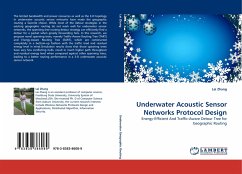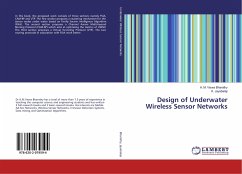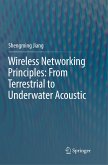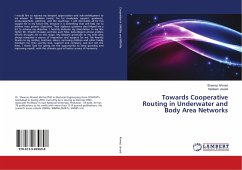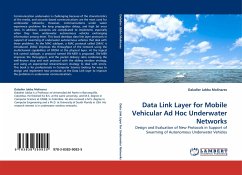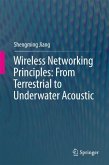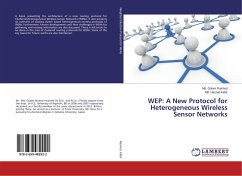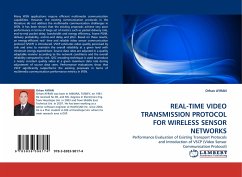The limited bandwidth and power resources as well as the 3-D topology in underwater acoustic sensor networks have made the geographic routing a favorite choice. While most of the detour strategies in the existing geographic routing do not work well for underwater sensor networks, the spanning tree routing detour strategy can efficiently find a detour for a packet when greedy forwarding fails. In this research, we propose novel spanning trees, namely Traffic-Aware Routing Tree (TART) and Energy-Aware Routing Tree (EART), which are constructed completely in a bottom-up fashion with the traffic load and residual energy level in mind.Simulation results show that those spanning trees have very few conflicting hulls, result in much higher path throughput and residual energy level when compared against other spanning trees, leading to a better routing performance in a 3-D underwater acoustic sensor network.
Bitte wählen Sie Ihr Anliegen aus.
Rechnungen
Retourenschein anfordern
Bestellstatus
Storno

